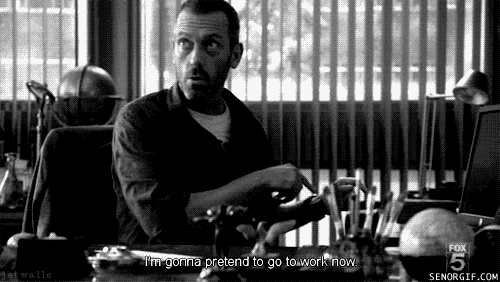We Need a Revival: Lost Words of Old English
Photo via Flickr
Ever feel there’s something missing from your vocabulary? Are you searching for that perfect word that’s just beyond the tip of your tongue, that no amount of looking it up in reverse-dictionaries can bring you relief? With the internet at our fingertips and new words coming into existence daily, maybe having too many options is the problem.
So, how about we take a step back? Rather than seeking out new words for getting our point across with, how about we look to old ones? Specifically, the lost words of Old English that really, really should be revived. Which ones are you going to start using?

GIF via Giphy
Everyday essentials
Why did we ever give up these words?! Grubbling is that thing you do in your pockets, bag, or drawer when you’re looking for feeling around for something. To corrade is to scrape together from various sources – not in the sense of researching, but more like copy-pasting from everywhere without fact-checking (a journalistic technique demonstrated by everyone from Fox News to the Daily Mail). A lanspresado is a person who conveniently forgets to bring money when they go out leaving others to foot the bill. And to fudgel is to pretend to work when in fact you’re not. It is an artform, not a character flaw
Words we really like…

No, not you, Groke via Comicfury
…and there are so many! To jargogle is to confuse or jumble things up. To be in a widdendream is to be in a state of great mental confusion. To brabble is to argue over petty things. Yemeles – pronounced yeem-less – is to be careless, heedless and negligent (if you want to put that into a sentence so it makes sense for you, we suggest using it with the words Spicer, and Sean, in any order you wish). And fýrgebræc is something smores-eaters and campfire-gatherers know best; it’s that beautiful, distinct crackling sound made by a fire.
Crapulous – we’ve all been there. Be it Sunday morning after a session on Saturday night, or post Christmas lunch; crapulous is that sick feeling we get when we’ve over-indulged in eating or drinking. To groke is to look at someone intensely whilst they are eating in the hope that they will give you some of it. And an expergefactor is anything that wakes you up, be it alarm clock, neighbours having sex, or your president starting world war three…
Learning a new language? Check out our free placement test to see how your level measures up!
Also appearing in Urban Dictionary…
Because some Old English words have had the internet treatment: to kench is to laugh loudly, although in more ‘modern’ English this also means a box where fish or skin is salted. But for Urban Dictionary, a kench is a beer belly. To freck in Old English is to move swiftly, although Urban Dictionary will tell you it is a response for expressing disappointment. And quagswagging is the action of shaking something back and forth; Urban Dictionary describes a quagswag as someone who likes being silly, or crazy. Curious.

Photo via The Blue DIamond Gallery
Slightly political?
Or not; depends how you use them, we suppose. A cockalorum is a self-important man. A rawgabbit is a person who speaks with authority about a subject that they know nothing about (a.k.a. much of the Trump administration). Mumpsimus is sticking to an idea or principle despite it being shown to be unreasonable or wrong (racists, misogynists, homophobes, transphobes, and pro-lifers, if you need examples). A snollygoster is a shrewd, unscrupulous person, especially a politician, guided by personal advantage. Sanguinolency is an addiction to bloodshed. And to be ludibrious is to apt to be the subject of mockery.
And the best of the rest…
A trumpery is an attractive thing with little value or use, or something that is showy but worthless. To be vinomadefied is to be soaked in wine. To be malagrugrous is to be gloomy and dismal. Perissology is the use of more words than are necessary. A hoddypeak is a fool. Hugger-mugger has two meanings that are both adjectives; either to be confused and disorderly, or to be clandestine.
Twitterlight – no, don’t panic, we’re not suggesting you reduce your Tweeting, and nor are we promoting an app that doesn’t clog up your phone so much (although that would be nice…). Twitterlight is just another, more whimsical way of saying twilight. Erstwhile means former, previous, or of past times. And elflock is when your hair gets all matted up; apparently in a manner that looks like it’s been fiddled with by elves. So that’s what Legolas was doing to Gimli…
And now we’re dismounting from our soapbox, we promise, and bedward (heading to bed). We hope you’ll agree that Old English is fabulous! Which words do you like?



